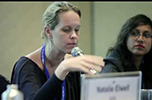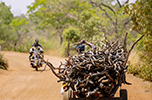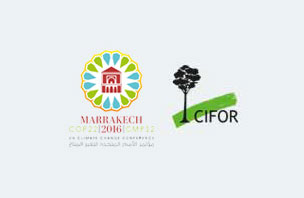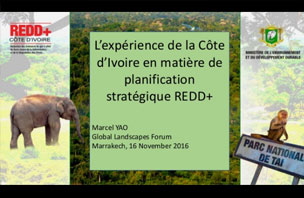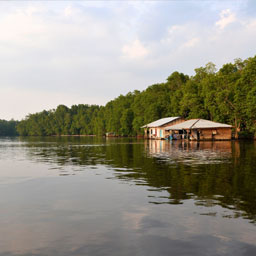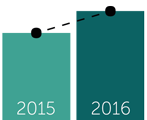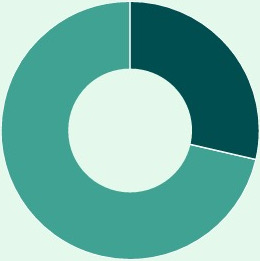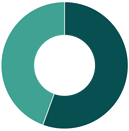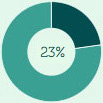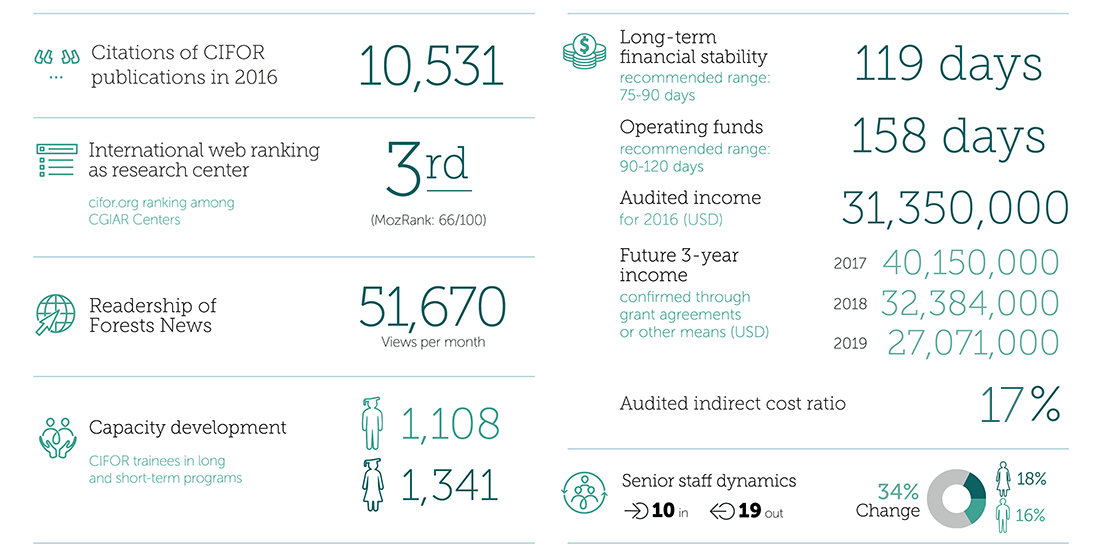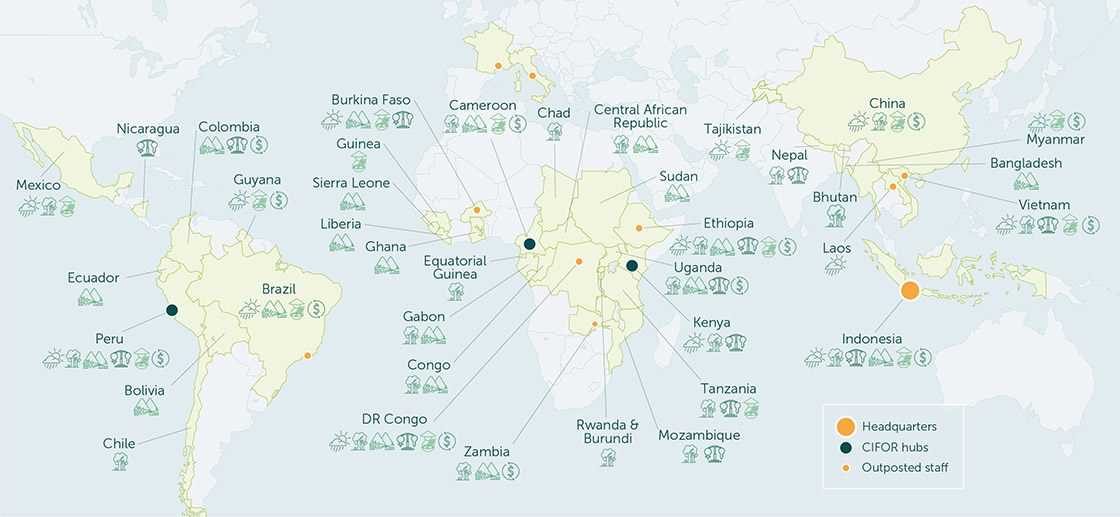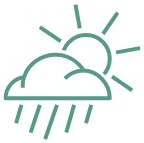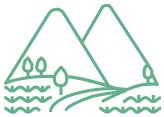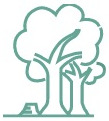
Highlights
2016 Achievements
- CIFOR was ranked 5th out of the top 100 climate think tanks by the International Center for Climate Governance, which assesses organizations that conduct results-oriented research to influence climate change and energy policy.
- Rewarding tropical countries for keeping their carbon-rich forests standing is the basis of the United Nations program on Reducing Emissions from Deforestation and forest Degradation (REDD+). This year, CIFOR’s Global Comparative Study on REDD moved into its third phase with five more years of funding to build on its track record for policy-oriented evidence, tools and analysis.
- CIFOR scientists were among 245 experts from 27 countries whose policy briefs were chosen for inclusion in the United Nations Global Sustainable Development Report. Research from three CIFOR briefs on gender and climate change was highlighted in the chapter ‘Ensuring that no one is left behind and the 2030 Agenda.’
If you intervene at the environment level in a landscape, you need to know that you are changing power relations. This is very important in a project like REDD+. When you intervene, you need to understand which kind of social impact this will have, including on gender relations.
Houria Djoudi, CIFOR Scientist, speaking in the panel discussion ‘How to walk the talk: Promoting gender equality in national climate policy and action’ at the Global Landscapes Forum in Marrakesh
Expert analysis
- Indigenous groups, non-governmental organizations and the private sector – called non-state actors – are helping to drive momentum for action on climate change. But without overall coordination, how can governments track progress transparently? We set out key recommendations for climate negotiators.
- CIFOR was asked by the UN climate change scientific advisory body to analyze members’ submissions on adaptation and agriculture, and concluded that more holistic approaches are needed.
- At a side event during the Bonn climate talks in May, CIFOR scientists shared lessons on results-based payments for REDD+ for more effective policies.
- To support countries in meeting their Paris Agreement commitments to lower greenhouse gas emissions from deforestation and agriculture, we published recommendations on how to use independent monitoring approaches – unbiased data, tools and methods – for more transparent and accountable land use reporting.
- Although preventing climate change and dealing with its effects are two sides of the same coin, they’re often treated separately. We explored the links being made between adaptation and mitigation – and how to avoid trade-offs.
All climate change publications >
It takes optimism and commitment for a state to break away from the entrenched interests driving deforestation.
CIFOR REDD+ scientists, REDD+ politics – or why it is so difficult to tackle large-scale drivers of deforestation
Global outreach
CIFOR’s Climate and energy team was highly active at global climate events, coordinating side events and engaging partners in topics ranging from gender-responsive climate policy to managing risks in REDD+.
- Asia Pacific Forestry Week, Philippines
- Bonn Climate Change Conference, Germany
- Asia-Pacific Rainforest Summit (APRS), Brunei Darussalam
- United Nations Climate Conference (COP 22), Marrakesh
- Global Landscapes Forum, Marrakesh
- Conference of the Parties to the Convention on Biological Diversity (CBD COP13), Cancun, Mexico
Photo by A. Erlangga/CIFOR.









